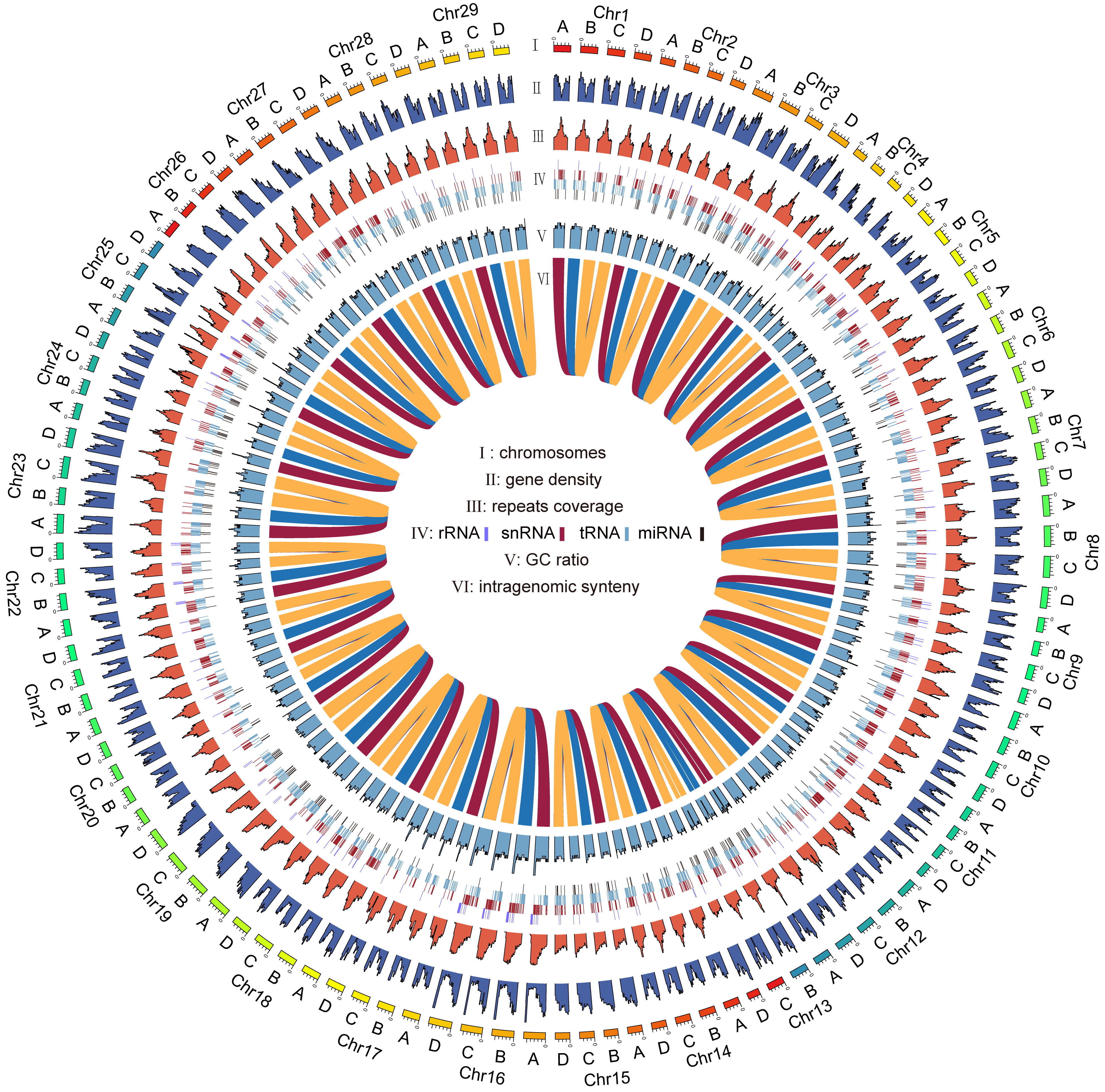
Actinidia arguta (commonly known as kiwiberry) is a fast-growing kiwifruit with small, but smooth, hairless skin and edible whole fruit. With rich nutrient content, A. arguta has laxative and immune-boosting medicinal properties, and excellent cold and disease resistance, making it as a new type of edible fruit or functional food. However, the overall scientific evaluation, protection, and utilization of this complex polyploid resource are still lacking.
Researchers led by Prof. WANG Yanchang and Prof. GAO Lei from the Wuhan Botanical Garden of the Chinese Academy of Sciences (CAS), together with collaborators from the Chinese Research Academy of Environmental Sciences, and The New Zealand Institute for Plant and Food Research Limited, generated chromosome-scale reference genome assemblies of A. arguta to dissect adaptive evolution and trait localization.
A high-quality tetraploid male genome of A. arguta was constructed and confirmed to be an autotetraploid. It was hypothesized that the current tetraploid was formed by duplication of the diploid ancestor in approximately 3.13 million years ago.
A. arguta has many environmental adaptation loci in its genome. 101 wild accessions were collected. Population genetic analyses identified two subpopulations, the Northern Group and the Southern Group, and identified divergence times, gene flow, population expansion events, and genetic loci associated with cold stress, drought, and vernalization. Paleoclimate data were reconstructed for the first time, revealing the selection of genomic loci by historical climates over the past 22,000 years. The evolutionary and environmental adaptation mechanisms of A. arguta populations were investigated.
In addition, the researchers uncovered three key genes (AaCEL1, AaPME1 and AaDOF1) that caused differences in fruit softening and identified the sex-determining region that differs from other reported species in Actinidia.
The results were published in Plant Communications entitled "Genome assembly of autotetraploidActinidia argutahighlights adaptive evolution and dissects important economic traits."
This study was supported by the National Key Research and Development Program of China, the Biodiversity Survey, Observation and Assessment Program of Ministry of Ecology and Environment of China, and the International Partnership Program of CAS, etc.

Genomic characterization of tetraploid Actinidia arguta. (Image by LU Xuemei)

86-10-68597521 (day)
86-10-68597289 (night)

52 Sanlihe Rd., Xicheng District,
Beijing, China (100864)

